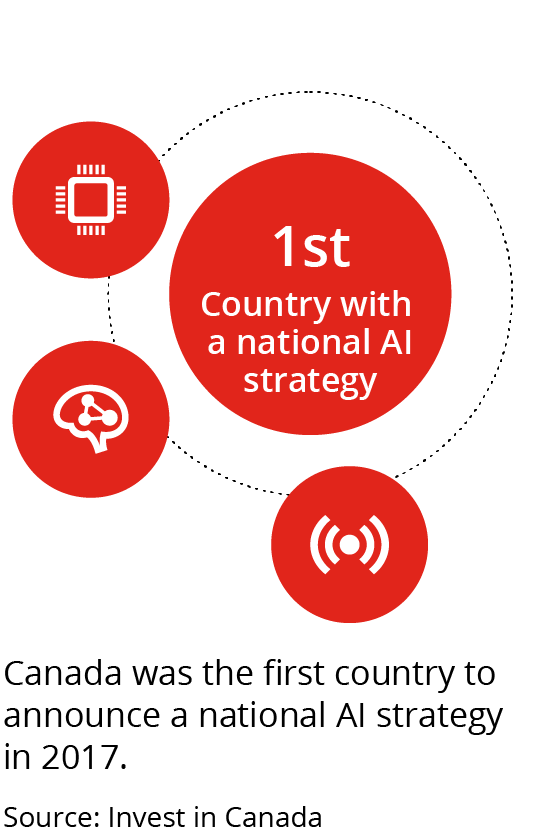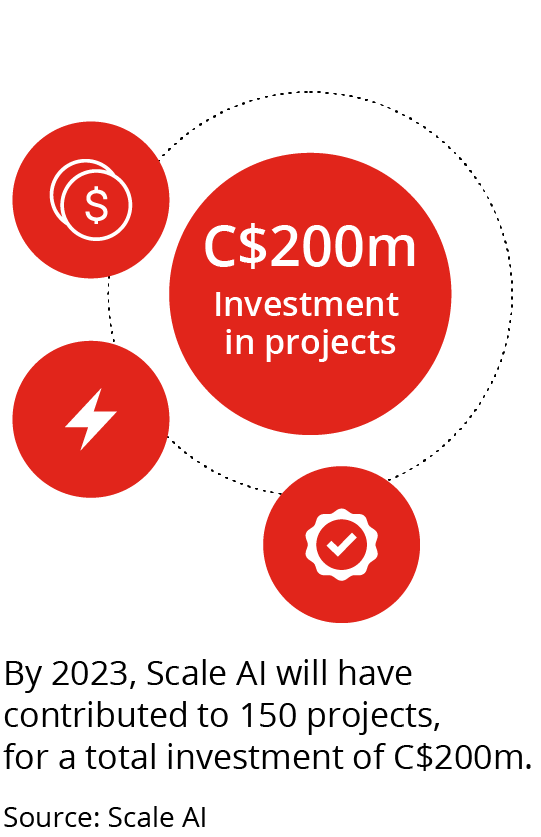Canada is a global leader in AI, thanks to exceptional talent, stellar research institutions and the decision to make it a strategic priority
Owing to the combined efforts of research centres, government, businesses and start-ups across Canada, artificial intelligence (AI) is venturing far beyond the laboratory and is already being integrated into a wide range of industries, transforming business models, supply chains and working practices along the way.
Canada was the first country to announce a national AI strategy in 2017, and is now widely seen as a global leader in the industry. The presence of world-class AI research centres such as the Alberta Machine Intelligence Institute (Amii); Mila – Quebec AI Institute, a partnership between Université de Montréal and McGill University; and the Vector Institute for Artificial Intelligence in Toronto, has contributed to a depth and breadth of world-class talent in Canada that is attractive to ventures worldwide.
Source: Scale AI
Canada is home to a number of world-class AI research institutes
Sources: Amii; Vector; Mila
Canadian centres of AI excellence
Established in April 2014 at the deep tech incubator TandemLaunch, Montreal’s wrnch was founded by the AI entrepreneur Dr Paul Kruszewski. The deep learning software company is currently building the wrnch Engine, the world’s most advanced human-centric computer vision engine, which will teach cameras to see and understand people in the way that humans do.
“Canada is home to some of the top universities in the world, and produces talented graduates in technology and AI. Montreal, particularly, is a hub for AI and has one of the largest deep learning science communities,” says Dr Kruszewski. “wrnch has been able to recruit top developers and AI scientists by being based in Canada. We have also partnered with Mila, a community of over 500 machine learning researchers, to improve how computers recognise and respond to human motion and shape.”
Western Canada has its own AI hub in Edmonton, Alberta. Medo aims to use cutting-edge AI to transform ultrasound by enabling it to detect common and critical conditions even when used in remote and rural settings. After establishing Medo in Singapore, the team thought long and hard about where to set up its second headquarters. Given the unique support system and infrastructure that Canada provides for start-ups, it was a natural choice, says Dr Dornoosh Zonoobi, Medo’s co-founder and chief executive.
Canada is home to some of the top universities in the world and produces talented graduates in technology and AI.
Source: Scale AI
Scale AI expected impact by 2028
Based in Quebec and spanning the Montreal–Waterloo corridor, the Scale AI Supercluster is dedicated to bringing the retail, manufacturing, transportation, infrastructure and ICT sectors together to build more intelligent and resilient supply chains, while accelerating the integration of AI, and scaling large and small organisations along the way.
As of June 2021, Scale AI has announced funding for more than 150 projects, representing more than C$200m of investment in AI industry-led projects, AI training initiatives and AI acceleration programs.
Back to top









